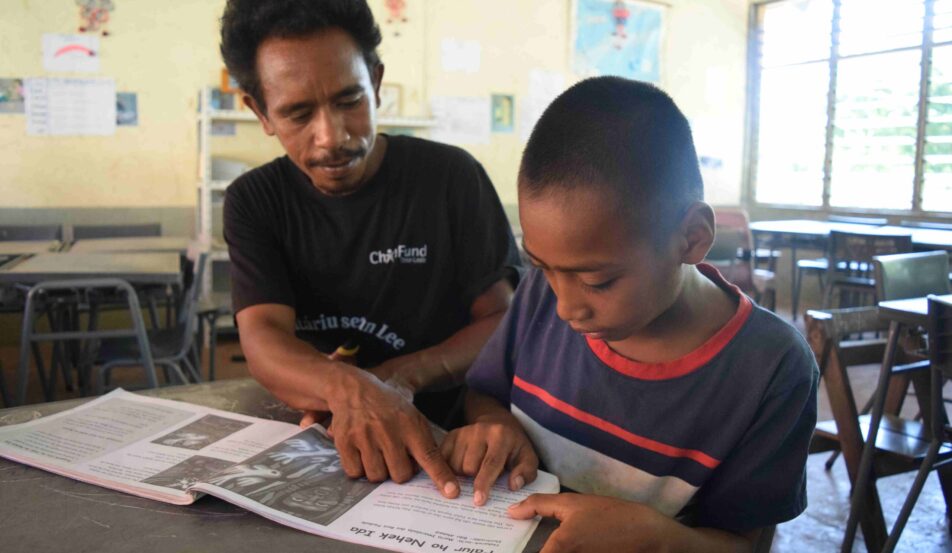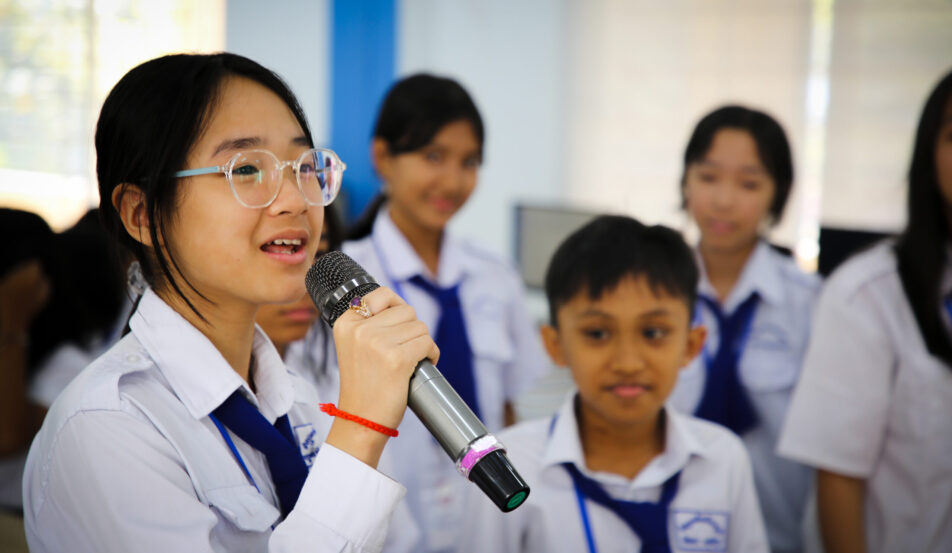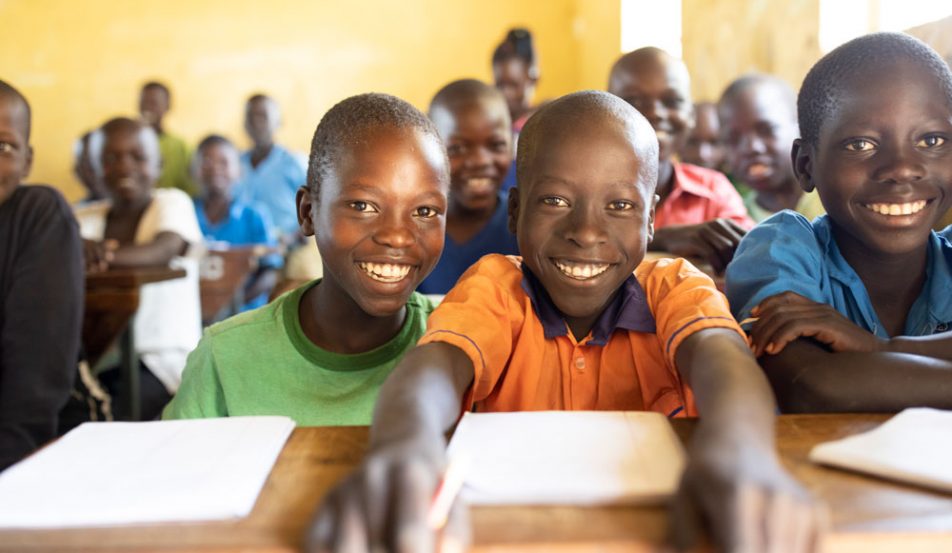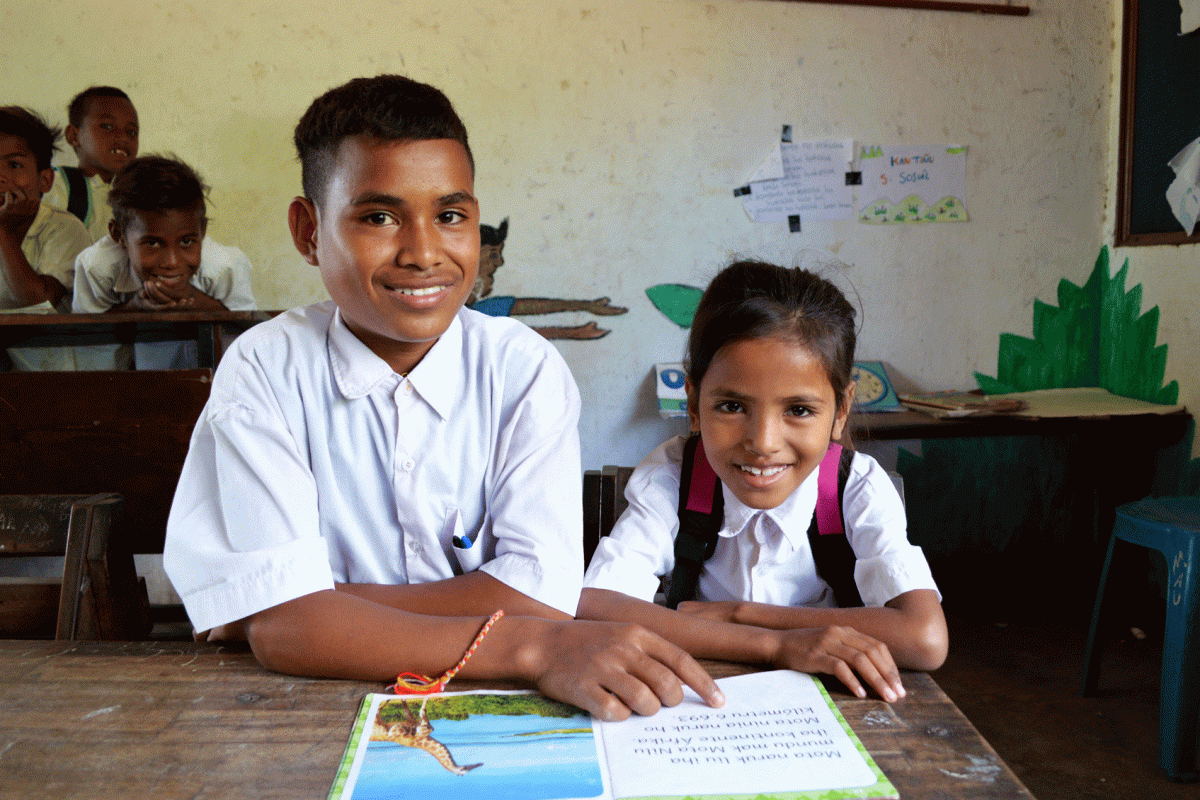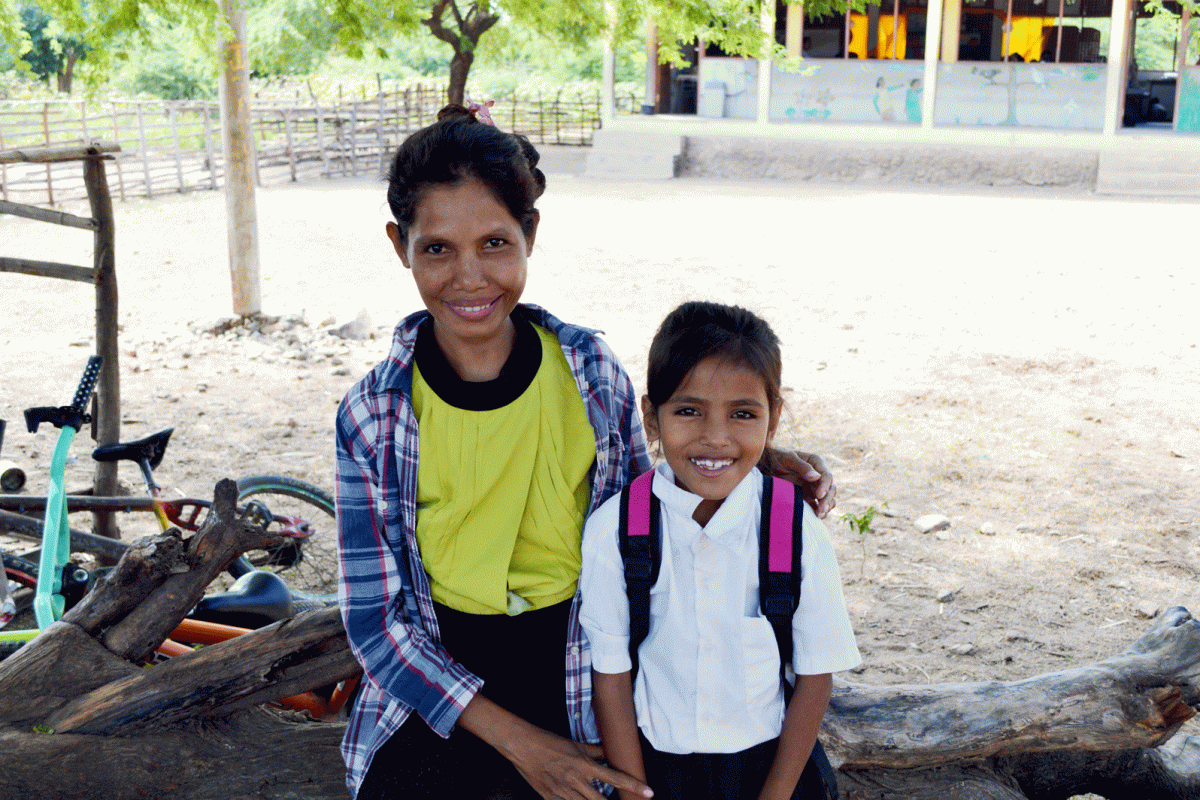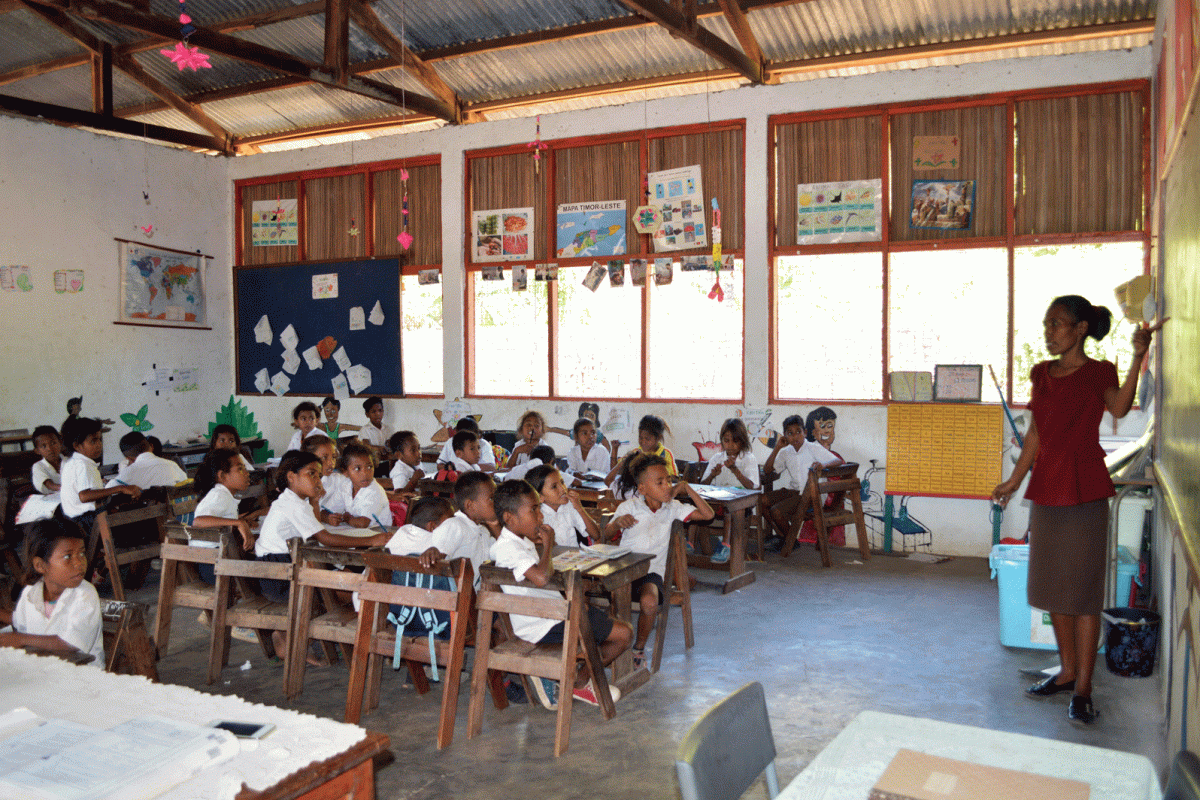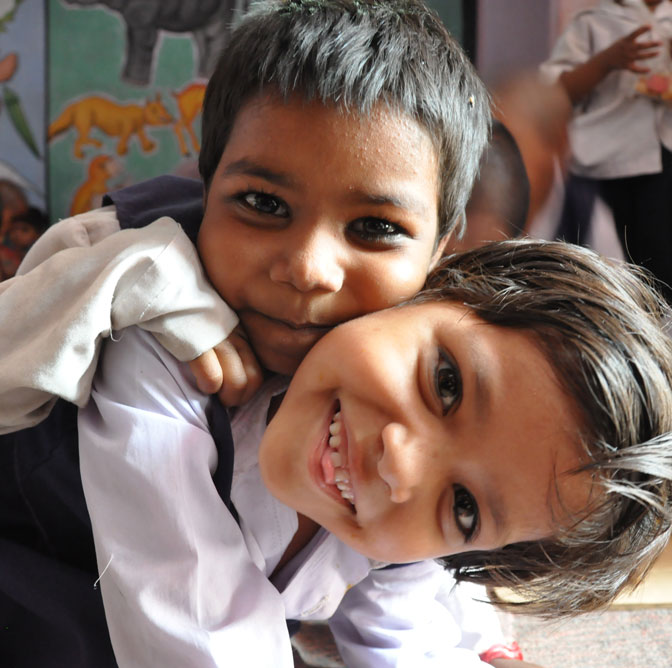For the past year, Dircia has been attending the reading sessions at her school, which ChildFund helps to facilitate twice a week. At the sessions she meets with her peer educator Luis, who is 15 years old and in Grade 6. Together, they read books, sing songs and play games with other children and peer educators.
It’s a fun learning experience that is making a huge difference. During one two-hour session, Luis may help Dircia read up to four books.
“I became a peer educator because I love to help younger children to read,” Luis says. “Since I’ve been Dircia’s peer educator I have seen an improvement in her reading.”
Grade 2 teacher Azinha has also seen Dircia’s literacy skills develop. Before ChildFund’s project began, Dircia was only able to identify letters, Azinha says, but now she can read full sentences and understands grammar.
“I’ve also noticed that Dircia is now understanding the context of stories,” Azinha says. “Dircia is a very good example. She’s very kind and friendly to her classmates and helps them to read. She’s always helping her friend Fabiana to read and write.
“The project has helped a lot in improving children’s literacy. I’ve noticed that children in Grade 2 in my class can already read and write.
“It makes me happy to see my students reading and writing.”
As part of ChildFund’s project, students also have access to more books and are introduced to fun games to help them learn.
“Children had difficulty learning, but games like bingo are making learning more attractive,” Azinha says.
While training young peer educators such as Luis has played a key role in improving literacy levels in children, the involvement of teachers and parents in the project has also been critical.
This project is supported by the Australian Government through the Australian NGO Cooperation Program (ANCP).































